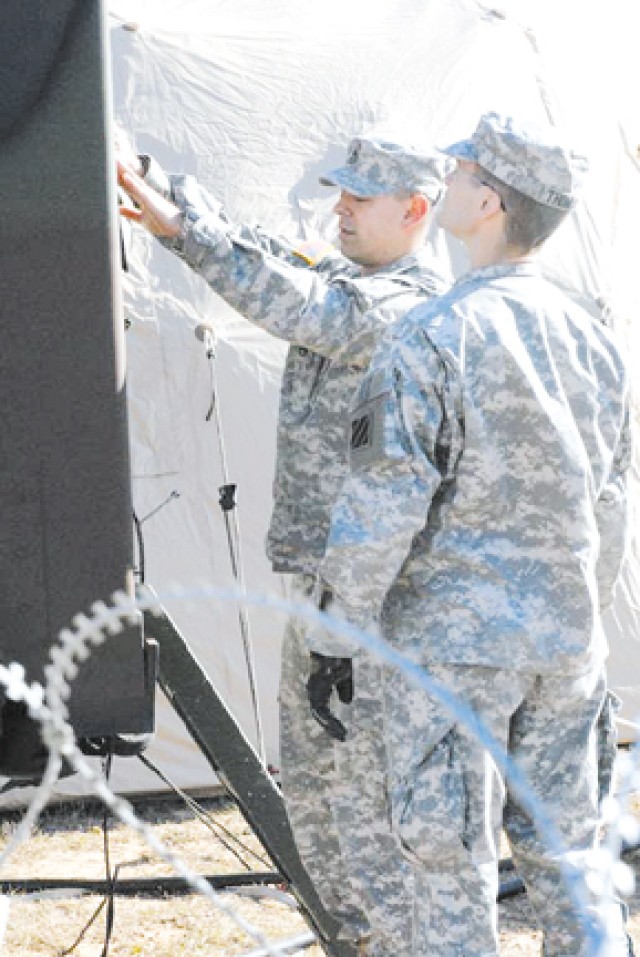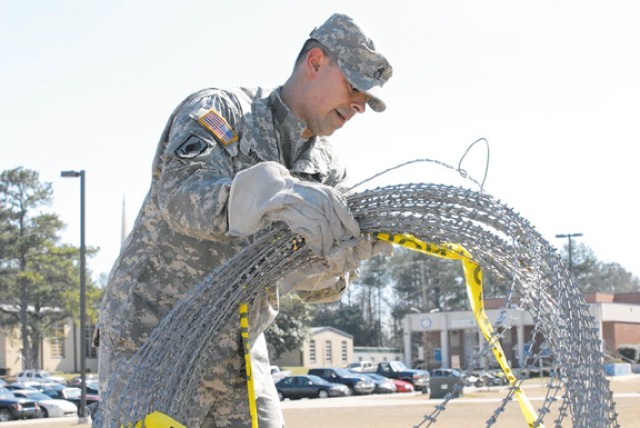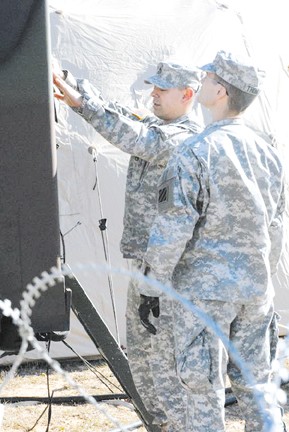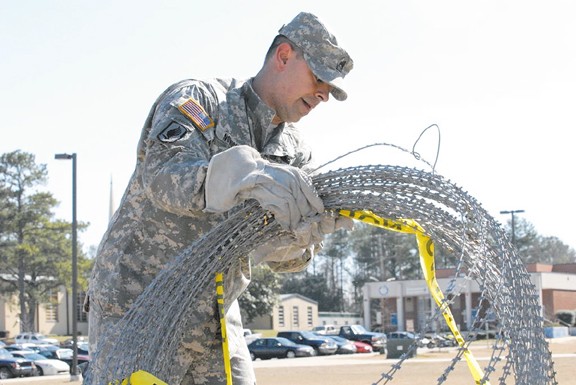FORT BENNING, Ga. - Intelligence gathering and analysis have proven integral to the U.S. Army's ability to defeat enemies and complete the mission. The 3rd Heavy Brigade Combat Team, 3rd Infantry Division has been increasing their intelligence training in preparation for the unit's potential deployment.
One of the missions for the Soldiers of the 3rd HBCT Fusion Cell is to bring together elements from the Army's broad-reaching intelligence gathering programs, analyze them, and create a single "fused" report to brief to the command. These reports are used to make quick, effective decisions.
The Fusion Cell Soldiers conducted field training exercises Feb. 2 - 6 to demonstrate their capabilities to the brigade commander, Col. Peter Jones.
Staff Sergeant Edward J. Nowicki, Headquarters and Headquarters Troop, 3rd HBCT, is the noncommissioned officer in charge of the Fusion Cell.
"We are basically practicing setting up a mobile (Sensitive Compartmentalized Intelligence Facility), which is the hub for intelligence activities for the Brigade," he said.
During the field exercise, the Fusion Cell gained important training for future operations.
"There are certain things that we owe to the battalions and companies, and that is intelligence that can be used to give a better picture of what is happening," said Jones.
That picture is giving the 3rd HBCT's leadership a better understanding of what is going on overseas; including information regarding the security situation and the local force's effectiveness in each country but also includes information about local industry, unemployment and basic living necessities like water, sewer and education.
"(Units) get better by doing collection and analysis," Jones said. "How we receive, fuse and produce intelligence is their baseline battle drill."
Jones likened the intelligence field to a puzzle with many pieces that overlap and connect in various ways to provide monitoring of events and actions taking place in and around the battlefield.
Looking forward, the intelligence group expects to support a potentially larger battle space and is putting procedures in place that allows the release of information to the local forces in order to support them, said Jones.
"We are maximizing our information and intelligence sharing with (the local forces) while protecting the Army's sources and methods," he continued, adding they are focusing on helping the local forces secure the population and increasing the capabilities of the government to provide essential services for its people.
"We are no longer the supported unit; we are the supporting unit," Jones said. "We are supporting the government's legitimacy as they protect the population."




Social Sharing